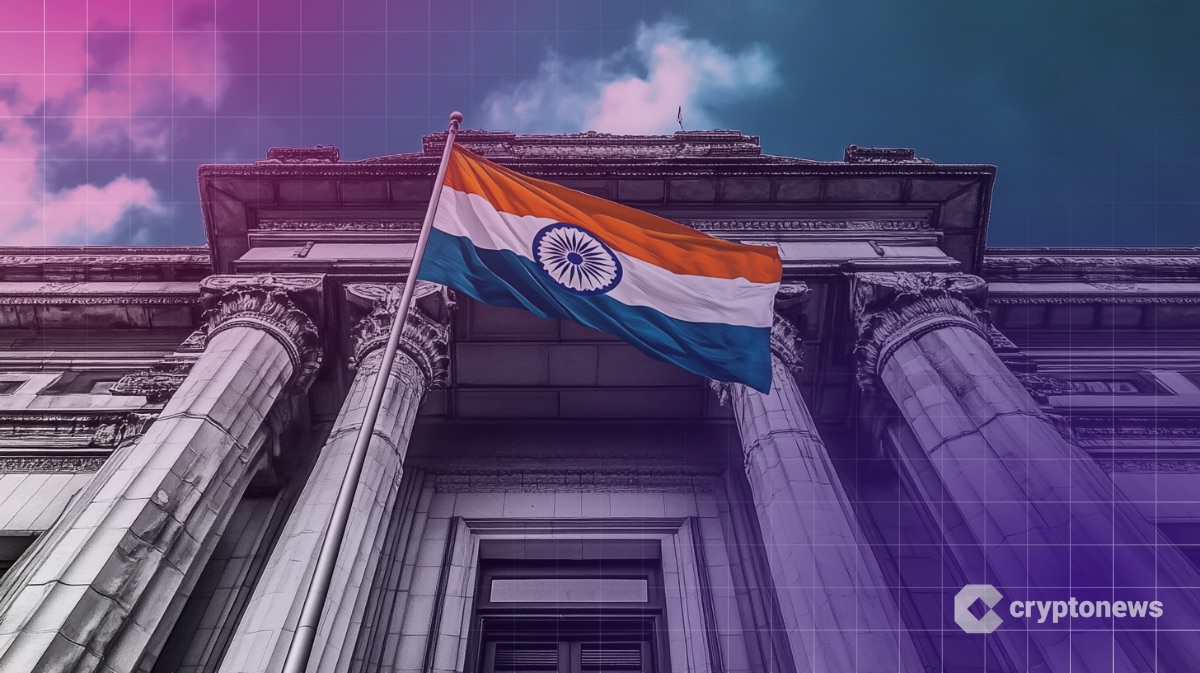India to Roll Out Sovereign RBI-Backed Digital Currency, Minister Flags Unbacked Crypto

Indian Union Minister Piyush Goyal announced that the nation will introduce a digital currency backed by a Reserve Bank of India (RBI) guarantee. The central bank-backed crypto is aimed at faster and traceable transactions compared to traditional banking.
India does not encourage digital assets that lack sovereign or asset backing, he said during the financial cooperation between India and Qatar in Doha.
“We don’t encourage it because we don’t want anybody to be stuck at some point with a cryptocurrency that has no backing and nobody at the backend.”
‘We only tax it’: Piyush Goyal
Per local reports, the minister clarified that India has imposed heavy taxes on unbacked crypto to discourage their use, rather than blanket bans.
“As far as cryptocurrency, which is not backed by the Central Govt, while there is no ban as such, we are taxing it very heavily,” he added.
Despite having the highest crypto adoption rankings this year, India’s heavy taxation to curb illegal activity has pushed more than 90% of Indian crypto trading offshore, according to a report by the Esya Centre.
India’s crypto sector has previously pushed the government to lower a 30% capital gains tax and a 1% levy on every crypto transaction.
India’s Digital Rupee Features Similar to Stablecoins
Goyal said that India’s digital currency would be faster to transact, skipping paper consumption. It would carry features similar to stablecoins as envisioned in the US GENIUS Act.
Last week, Finance Minister Nirmala Sitharaman stressed that nations must prepare to “engage” with stablecoins, whether they like it or not. She highlighted the growing influence of digital currencies on the global financial system.
“No nation can insulate itself from systematic change. Whether we welcome these shifts or not, we must prepare to engage with them,” the Finance Minister spoke during an economic conclave in New Delhi.
Her remarks indicate that India is keeping a close eye on the evolving digital economy and could be rethinking its approach to cryptos.
Reuters recently reported that India plans to avoid fully regulating cryptocurrencies for now. Instead, the nation will maintain partial oversight on the asset class.
A document citing the RBI noted that bringing crypto into the mainstream financial system could raise systemic risks. Regulating cryptocurrencies in India would grant them “legitimacy and may cause the sector to become systemic”, read the government document.
The post India to Roll Out Sovereign RBI-Backed Digital Currency, Minister Flags Unbacked Crypto appeared first on Cryptonews.
India to Roll Out Sovereign RBI-Backed Digital Currency, Minister Flags Unbacked Crypto

Indian Union Minister Piyush Goyal announced that the nation will introduce a digital currency backed by a Reserve Bank of India (RBI) guarantee. The central bank-backed crypto is aimed at faster and traceable transactions compared to traditional banking.
India does not encourage digital assets that lack sovereign or asset backing, he said during the financial cooperation between India and Qatar in Doha.
“We don’t encourage it because we don’t want anybody to be stuck at some point with a cryptocurrency that has no backing and nobody at the backend.”
‘We only tax it’: Piyush Goyal
Per local reports, the minister clarified that India has imposed heavy taxes on unbacked crypto to discourage their use, rather than blanket bans.
“As far as cryptocurrency, which is not backed by the Central Govt, while there is no ban as such, we are taxing it very heavily,” he added.
Despite having the highest crypto adoption rankings this year, India’s heavy taxation to curb illegal activity has pushed more than 90% of Indian crypto trading offshore, according to a report by the Esya Centre.
India’s crypto sector has previously pushed the government to lower a 30% capital gains tax and a 1% levy on every crypto transaction.
India’s Digital Rupee Features Similar to Stablecoins
Goyal said that India’s digital currency would be faster to transact, skipping paper consumption. It would carry features similar to stablecoins as envisioned in the US GENIUS Act.
Last week, Finance Minister Nirmala Sitharaman stressed that nations must prepare to “engage” with stablecoins, whether they like it or not. She highlighted the growing influence of digital currencies on the global financial system.
“No nation can insulate itself from systematic change. Whether we welcome these shifts or not, we must prepare to engage with them,” the Finance Minister spoke during an economic conclave in New Delhi.
Her remarks indicate that India is keeping a close eye on the evolving digital economy and could be rethinking its approach to cryptos.
Reuters recently reported that India plans to avoid fully regulating cryptocurrencies for now. Instead, the nation will maintain partial oversight on the asset class.
A document citing the RBI noted that bringing crypto into the mainstream financial system could raise systemic risks. Regulating cryptocurrencies in India would grant them “legitimacy and may cause the sector to become systemic”, read the government document.
The post India to Roll Out Sovereign RBI-Backed Digital Currency, Minister Flags Unbacked Crypto appeared first on Cryptonews.

